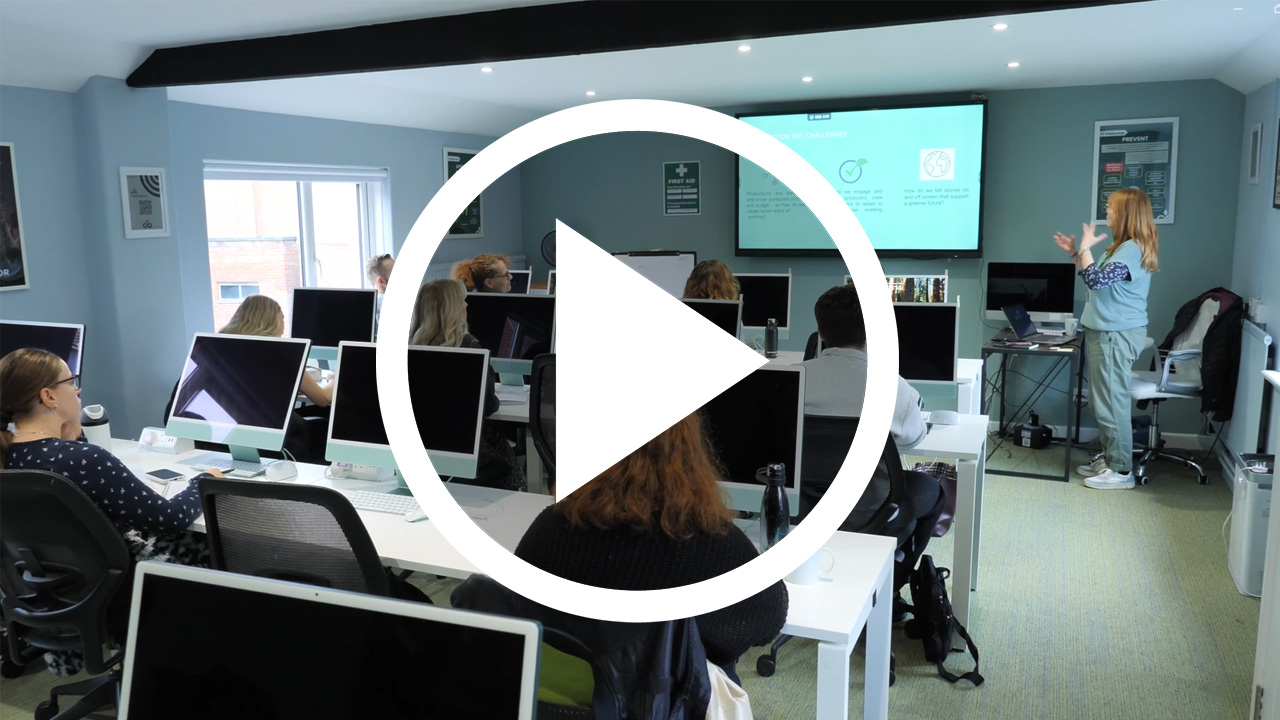- By Buckinghamshire Business First

Share by email
Buckinghamshire Business First (BBF) is delighted to confirm that it has been appointed by Skills England as the Employer Representative Body (ERB) for Buckinghamshire to lead the development of the county’s next Local Skills Improvement Plan (LSIP).
Find the information you're looking for with our quick links:
- What is the Local Skills Improvement Plan (LSIP)?
- How can employers get involved?
- How will this benefit employers?
- How successful has the existing LSIP been?
- What is an Employer Representative Body?
- How does this affect schools and colleges?
- How to contact us about the new LSIP >
What is the Local Skills Improvement Plan (LSIP)?
The LSIP is a government-backed initiative that places employers at the heart of the local skills system. It aims to ensure that post-16 technical education and training meets the needs of businesses, helping learners gain the skills they need to secure good jobs and supporting economic growth across the county.
This new phase will be delivered in partnership with Buckinghamshire Council, aligning with the Council’s Economic Growth Plan and Skills and Employment Strategy.
Launching the new LSIP
The new LSIP development process was officially launched on 27th November 2025 at the Buckinghamshire Business Showcase and AGM, marking the start of a renewed phase of employer-led collaboration.
Minister for Skills, Baroness Jacqui Smith, says: "Local Skills Improvement Plans (LSIPs) are critical for developing the skilled workforce Buckinghamshire needs. I’m delighted that the second wave of LSIPs is currently underway and I encourage businesses to engage with Buckinghamshire Business First to articulate their skills needs and work with Buckinghamshire Council and local skills providers, including colleges and local universities, to develop solutions to address them.
"Local businesses and communities know best what skills they need to succeed. New Local Skills Improvement Plans will put employers, educators and authorities at the heart of identifying skills gaps and delivering the training that matters most to their area. By tailoring skills training to local needs, we will break down barriers to opportunity and help businesses and communities across England thrive."
Phil Smith, chair of Skills England, said: “Delivering meaningful change must be driven at a local level by the people who know their communities best. Local Skills Improvement Plans are central to making this a reality - uniting employers, strategic authorities, HE and FE providers and all those involved in solving local skills challenges together. This new guidance sets the roadmap for making that happen.”
Get involved and join a Sector Employer Group
Employers are central to the success of the Local Skills Improvement Plan, which can unlock economic growth and the earning potential of people across the county - and nationwide. As we begin this next phase, it is vital that businesses of all sizes and sectors get involved. Your insights and experiences are essential to shaping a skills system that works for Buckinghamshire - now and for the future.
Buckinghamshire Business First has established a cohort of Sector Employer Groups who will work together to shape the new LSIP and the future of training and skills provision within the county.
Learn more about joining a Sector Employer Group here >
Upcoming dates for Employer Group meetings
The next Sector Employer Group meetings will take place in January 2026. Employers in the below sectors can book their place now:
- Film and TV Sector Employer Group
- Digital Sector Employer Group
- Engineering Sector Employer Group
- Construction Sector Employer Group
Check this link for the latest events.
These events also provide great opportunities for networking and engaging in discussions about the challenges facing particular industries.
How will this benefit employers in Buckinghamshire?
- Employers are placed right at the heart of the Local Skills Improvement Plan in order to address key skills shortages.
- Training and skills development will be more responsive to the needs of employers.
- Training provision will be specified to help employers recruit and/or train the staff they need to grow their business.
- Seeing a better match between skills provision and their skills needs, something highlighted at employer focus groups and roundtable discussions.
- Employers can support local employment and upskilling by offering apprenticeships and work placements, and seconding staff to colleges.
- Seeing the human side of skills development and career opportunities through networking and talent showcase events.
Building the new LSIP on successful foundations
The new plan builds on the success of the existing LSIP, launched in June 2023, which has already delivered significant impacts after bringing employers and providers together to tackle long-standing skills problems and collaborate on solutions. Read about the success of the existing LSIP in the downloads below:
- Buckinghamshire Local Skills Improvement Plan Progress Report 2025: Download here (PDF) >
- LSIP Progress Report 2025 - Annex A: Priorities and Actions [Roadmap]: Download here (PDF) >
Read the existing Buckinghamshire Local Skills Improvement Plan (LSIP)
This ground-breaking report was the sum of six months of hard work, debates and focus groups with employers, training providers and other stakeholders to establish the specific skills priorities for Buckinghamshire and create the blueprint for how these needs can be met. Thanks to the collaborative nature of the LSIP, this is a game-changer for employers, education and training providers, students and career seekers.
Read the Buckinghamshire Local Skills Improvement Plan (LSIP) >
While the LSIP covered 2022-25, Buckinghamshire Business First is clear that we are looking longer term, and that this report is merely the beginning of what will create a tangible legacy.
What is in the existing Local Skills Improvement Plan?
The LSIP:
- Identifies where the most pressing skills shortages are within the local workforce – i.e. the skills employers most need but are struggling to find locally.
- Stems from working directly with employers facing these priority skills shortages to gain a full understanding of the skills and expertise that are, or may in future, be required in Buckinghamshire.
- Enables education and training providers to deliver post-16 technical education or training that directly addresses the priority areas and skills shortages identified.
- Considers how over-arching issues such as Net Zero, climate change and digitalisation affect businesses in all sectors.
What were the established priority areas?
The priority sectors identified were:
- Construction
- Digital
- Engineering
- Film & TV
- Health & Social Care
We identified the following cross-sector skills:
- Digital literacy
- Green / net zero
- Work readiness
- Artificial intelligence (emerging as a key skills issue since 2022)
For more detail, read Buckinghamshire LSIP Annex C – Sectors and Cross-sector Theme Plans: Download here (PDF) >
How did the existing Local Skills Improvement Plan come together?
Buckinghamshire Business First led the research and development of the Local Skills Improvement Plan in Buckinghamshire, having been chosen by the government as the official Employer Representative Body (ERB) for skills in our county.
From the moment Buckinghamshire Business First was designated as the ERB for the county, we worked closely with employers, sector-specific focus groups, education and training providers, representatives from Buckinghamshire Council, and our local Members of Parliament, to establish the specific skills priorities for Buckinghamshire.
For more detail, read the:
- Buckinghamshire LSIP Progress Report 2025: Download here (PDF) >
Previous Buckinghamshire LSIP Progress Report (2023/24)
- Buckinghamshire LSIP Progress Report 2023-24: Download here (PDF) >
- Buckinghamshire LSIP 2022-2025: Annex A - Local Strategic Context: Download here (PDF) >
- Buckinghamshire LSIP 2022-2025: Annex B - Background and Method: Download here (PDF) >
What is an Employer Representative Body?
An Employer Representative Body (ERB) is an organisation that has been designated by the Secretary of State to be responsible for leading on the research, development and production of a Local Skills Improvement Plan (LSIP) for a specified area.
A total of 38 employer representative bodies across England have been tasked with writing plans that help to address local skills shortages and ensure that the priorities of businesses are being catered for by local education and training providers.
In addition to being the Employer Representative Body for skills, Buckinghamshire Business First is also the Growth Hub for the county and has a membership of 15,000 Buckinghamshire-based businesses.
Collaboration has been key
As the ERB for skills in our county, Buckinghamshire Business First has worked with employers, training providers and other stakeholders to identify the key skills needed in Buckinghamshire and ensure that post-16 technical education and training is more closely aligned to these employer and local labour market needs.
Buckinghamshire-based education and training providers can get involved in the Education & Training Provider Forum to support the LSIP’s implementation and continue shaping the county’s skills strategy.
What about schools and colleges?
Buckinghamshire has long set the blueprint for uniting employers and education and training providers through the work of the Buckinghamshire Skills Hub, whose county-wide events such as the wildly successful Bucks Skills Show are proof of the good that can come from bringing together different links of the same chain (employers and schools; employers and adult career changers; business groups and training providers).
Through the LSIP, education providers now have an insight into the future plan for skills in the county, and they and their students will benefit from activity such as work experience opportunities, teacher encounters with businesses, speakers from priority sectors, engagement with parents, and collaborations between schools and technical and vocational training providers.
Read the existing Buckinghamshire Local Skills Improvement Plan
Buckinghamshire Local Skills Improvement Plan (LSIP): Download here (PDF) >
Strategic Context: Download here (PDF) >
Buckinghamshire LSIP 2022-2025: Annex B - Background and Method: Download here (PDF) >
Buckinghamshire LSIP 2022-2025: Annex C – Sectors and Cross-sector Theme Plans: Download here (PDF) >
This Local Skills Improvement Plan has been approved by the Secretary of State in line with the approval criteria set out in the Skills and Post-16 Education Act 2022, and in accordance with the LSIP statutory guidance.
How to contact us about the Local Skills Improvement Plan
To find out more or register your interest in contributing to the LSIP, please contact the BBF Workforce Skills Team: [email protected] / 01494 927130.
John Browning is the Programme Manager for the Local Skills Improvement Plan in Buckinghamshire.
He can be contacted directly at [email protected] or 01296 798774 / 07507 690892.
To learn about the LSIP Conflict of Interest Policy and the LSIP Register of Interests, click here.


